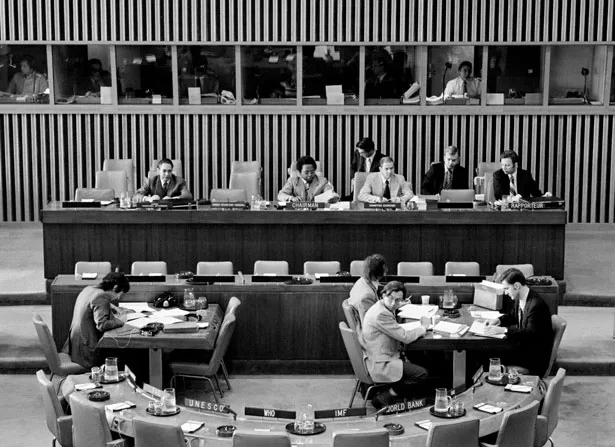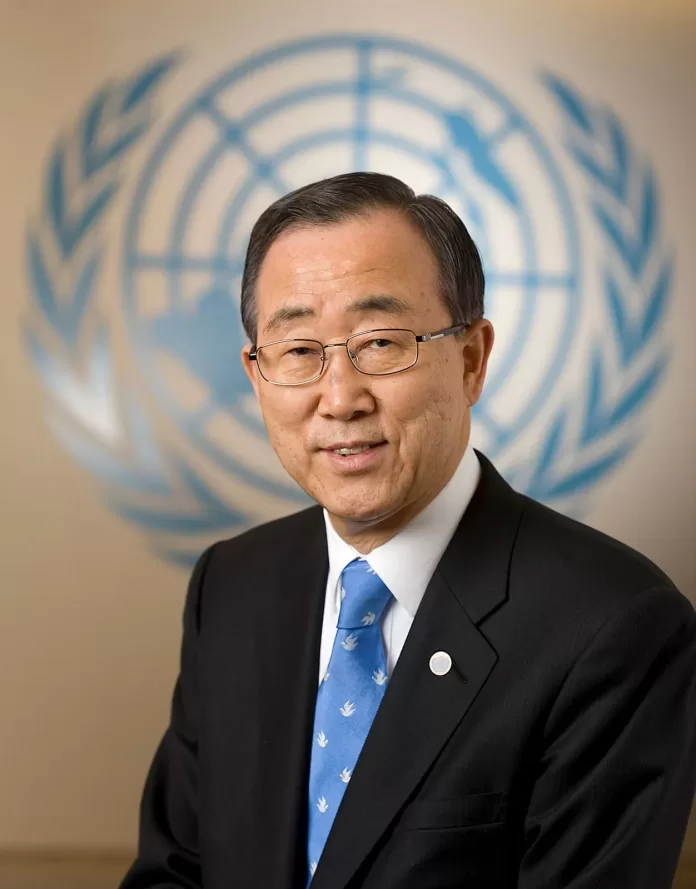Turkish Republic of Northern Cyprus (TRNC) commemorated its proclamation day last month. Cyprus conflict falls in the category of those international disputes whose equitable resolution would benefit the Muslim population; other such conflicts are Palestine and Kashmir. These conflicts are on the agenda of the United Nations; yet they have betrayed solution since decades, bogged down in inconclusive circuitous negotiations.
Fourth round of trilateral meetings under the auspices of UN good offices ended on 01 November 2011. Mr Ban Ki Moon remarked, “We last met in July… agreed that the sides would intensify the talks…leaders met 19 times…Considerable advances were made in the areas of economy, EU matters and internal aspects of security. Much less progress was made in the areas of governance, property, territory and citizenship…The sides have made some encouraging progress during these two days on some of the remaining issues… This has given me confidence that a comprehensive settlement can be achieved… there is still work to be done”.
Next round will be in coming January. Mr Moon expressed his optimism, “By then, I expect the internal aspects of Cyprus problems to have been resolved so that we can move to the multilateral conference shortly thereafter.”
Lingering-on of Cyprus conflict reinforces the unfortunate perception that multilateral institutions like the United Nations jumps in quickly for a swift resolution of only those conflict where the beneficiary of resolution are non-Muslims. However, the disputes whose settlement could benefit the Muslims are usually kept on back burners. In most of such cases, undue diplomatic and other support is extended to the non-Muslim parties to the dispute. For example, Greek component of Cyprus enjoys the diplomatic acceptance as the representative government of Republic of Cyprus despite having acted to subvert the international agreements regarding power-sharing mechanism between the Turkish and Greek communities of the Republic.
When Republic of Cyprus rejected the (Kofi) Annan Plan in 2004, the European Union accepted it as its member within a week; despite an earlier understanding that EU membership for the island would be considered after an amicable settlement of the conflict. It was indeed an indecent haste radiating the message of rewarding the side rejecting a very practicable UN initiative. It emboldened the Republic to drag its feet in negotiations.
TRNC accepted the Annan initiative, yet if faces a soft siege due to travel, trade, financial and diplomatic exclusion. The promises made to TRNC for easing out these restrictions if it accepted the Annan Plan were never kept.
Recent discovery of hydrocarbon reserves in the maritime shelf of the island has heightened the tensions with regard to the ownership and exploitation rights. On this issue, Republic of Cyprus is trying to form a nexus with Israel. The situation may become complex because Israel may field Republic of Cyprus as a cheaper deterrent against Turkey to offset its own tensions with Turkey. If such a scenario emerges, the prospects of resolution of the Cyprus conflict would once again become very bleak.
For centuries, two distinct sovereign people have existed in Cyprus, the Turkish Cypriots and the Greek Cypriots. Traditionally they have enjoyed equality of political rights, with separate right to self-determination.
Upon independence from the British colonial regime, the two people negotiated and signed three international treaties in 1959-60; and agreed to share power under a partnership republic. According to the “Basic Structure” of the Zurich Agreement of 1959, Cyprus was to have a presidential form of government, with a Greek Cypriot president and a Turkish Cypriot as vice president elected separately by their respective communities. Treaties spelled out the principle of political equality between the two communities in a partnership state, based on federalism. The two people were accepted as politically equal co-partners. Legislative authority was vested in the House of Representatives, composed of 70% Greek and 30% Turkish Cypriots; elected by respective communities, same percentage was allocated for civil services. Both communities managed their communal affairs through separate chambers and municipalities. A Supreme Constitutional Court was established for adjudication in case of a dispute.
Republic of Cyprus came into being on 16 August 1960. Turkey, the UK and Greece became the guarantors of the treaties. However, the partnership republic was short lived. Greek Cypriots devised a clandestine plan to unite the Cyprus Island with Greece. In 1963, President of the Republic unilaterally revoked the thirteen provisions of the constitution related to the political rights of Turk Cypriots. Supreme constitutional court struck down the Presidential order. However, President refused to abide by the court verdict. Because of standoff, the constitutional system collapsed and the two sides established their separate administrations.
During 1963-74, Greek Cypriots and their associated militias killed and wounded thousands of Turk Cypriots. Around 30,000 became homeless. On 15 July 1974, the Military Junta ruling Greece staged a coup d’état through its military and Greek Cypriot collaborators. This was the final phase of the armed takeover of Cyprus. Those who opposed the coup were killed in a large number, resulting into an exodus. Turkey requested the other guarantor of the treaties, the UK, for a joint action to restore status quo ante. Britain declined to fulfil its obligations. On 20 July 1974, Turkey intervened militarily to stop the bloodshed.

Vienna agreement was signed in 1975 leading to population regrouping through communal migrations. This gave rise to the issue of abandoned properties, which is now one of the stickiest points of negotiations. After the population exchange, a bi-zonal bi-communal scenario emerged. A UN peace Mission was stationed on the island; its low profile presence continues to-date.
To end the stalemate and effectively take charge of the situation, the people of Turkish Cyprus proclaimed TRNC as a sovereign state on 15 November 1983. Since its inception, the new republic has persistently followed a policy of reconciliation. It is striving hard to find a political solution to the dispute under a single state federal structure.
Current phase of the dialogue between the two states of Cyprus started in 2008; since then the two leaders have met around a hundred times.
Attempts to reach a solution to the dispute have so far been unsuccessful. There are no high hopes either. Despite the sporadic rhetoric of optimism, chances of a durable solution are rather dim. Any political power sharing arrangement pegged around a federal structure could end up in to a relapse of 1963 situation. Due to bitter experience, people-to-people trust deficit is on a high pitch. Turkish Cypriots are striving for an early political solution, but Greek Cypriots are enjoying the squeeze that TRNC is facing due to its unjust isolation.
Pending the outcome of ongoing negotiations, there is a need to lift unnecessary restrictions imposed on TRNC. Direct trade, aid and allowing free travel would serve as confidence building measures and convince the people of TRNC to support a federal structure for reunification. Likewise, the Republic of Cyprus needs to be persuaded towards an equitable solution.
People of Pakistan feel the pain of the people of TRNC emanating out of unjust restrictions, and wish them an early success in finding a solution to Cyprus conflict in line with the aspirations of Turkish community of the island.




